Data Infrastructures: Database Stories, Dumps and Query Driven Narratives
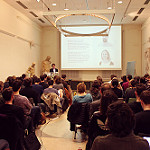
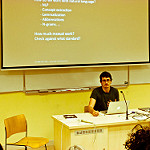
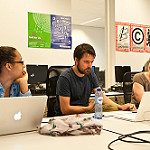

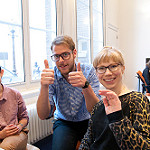
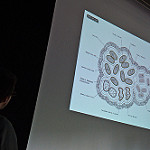 Digital Methods Winter School 2017
Digital Methods Winter School 20179-13 January 2017 Everyday winter school location
Digital Methods Initiative
University of Amsterdam
Turfdraagsterpad 9, 1012 XT Amsterdam
https://wiki.digitalmethods.net/Dmi/WinterSchool2017 Opening day location (starting at 9:30am, please be on time)
Oudemanhuispoort (Law Faculty Building); room F0.01
University of Amsterdam
Oudemanhuispoort 4-6, 1012 CN Amsterdam
https://www.google.com/maps/place/Amsterdam+Research+Institute+for+Legal+Studies/@52.3694568,4.8938353,17z/data=!3m1!4b1!4m5!3m4!1s0x47c609bf77ab4125:0x769fb61586fc60da!8m2!3d52.3694568!4d4.8960293
Project Pages
Winter School 2017 Project PagesProject Rooms
| Project Number | Project Title | Room |
|---|---|---|
| 1 | When All Hope Was Lost [Natalia Sanchez] | BG1 0.04 |
| 2 | The Development of the Right-Wing “Fake News” Ecosystem [Liliana Bounegru] | BG1 0.13 |
| 6 | What Do Data Portals Do? [Jonathan Gray] | BG1 0.14 |
| 3a | Trolls for Trump [Marc Tuters, Bernhard Rieder] | BG1 0.16 |
| 3b | Memes That Galvanized the Alt-Right [Marc Tuters, Bernhard Rieder] | BG1 0.16 |
| 4b | The Trump Bubble [Alex Gekker, Natalia Sanchez] | C0.01 (Potgieterzaal) |
| 4a | From Inside the (Conservative) Bubble [Shannon Mattern] | University Library C0.01 (Potgieterzaal) |
| 5 | App Stores as Data Infrastructures [Anne Helmond, Fernando van der Vlist] | University Library C1.08 (Vondelzaal) |
| 7 | Code Historiography [Johannes Paßmann] | University Library C1.08 (Vondelzaal) |
| 8 | (Optional) Student Worksheet: Memes as Platform Content [Richard Rogers] | University Library C1.13 (Belle van Zuylenzaal ) |
Important Links
| Shortlinks Overview | Description |
|---|---|
| bit.ly/dmi17_ws_welcomepackage bit.ly/dmi17_ws_welcomepackage-folder |
Main welcome package documents. (Sent per mail.) This includes: the welcome package and the welcome package folder. |
| bit.ly/dmi17_ws_schedule bit.ly/dmi17_ws_projectdescriptions bit.ly/dmi17_ws_reader bit.ly/dmi17_ws_reader-zip bit.ly/dmi17_ws_facebook bit.ly/dmi17_ws_locations bit.ly/dmi17_ws_lunch |
Additional documents linked from the main welcome package. (As well as included in the welcome package folder.) This includes: the day-to-day schedule, project descriptions, the reader, a .ZIP-archived version of the entire reader, the face book, and maps of venue locations as well as coffee and lunch places. |
| bit.ly/dmi17_ws_worksheet-cpa DMIR_2016_worksheet7_platform_content.pdf |
Project worksheets on cross-platform analysis and memes as platform content. Both worksheets are part of the mandatory winter school preparations. (Please find further information in the welcome package.) Note: The worksheets are also the (optional) assignment for New Media & Digital Culture Master's students. (Please contact the course instructors.) |
| bit.ly/dmi17_ws_template-gdoc bit.ly/dmi17_ws_template-wiki |
Research project report templates for Google Docs and for the DMI Wiki. (Please find further instructions in the welcome package.) |
| bit.ly/dmi17_ws_schedule-miniconference bit.ly/dmi17_ws_miniconference-folder |
Mini conference schedule and folder. (The mini conference runs parallel to the data sprint and is (primarily) for those who have submitted a paper in advance of the winter school. Please find further information in the welcome package) |
Digital Methods Winter School, Data Sprint and Mini-Conference
The Winter School will include a project on ‘Trump tweets’, which explores longitudinally Donald Trump’s Twitterverse. It is part of a larger project on the Trump filter bubble, or an account of how traditional media instruments failed to capture Trump's popular appeal.The Digital Methods Initiative (DMI), Amsterdam, is holding its annual Winter School on Data Infrastructures. The Winter School is co-organised with the German collaborative research centre "Media of Cooperation" at the University of Siegen. The format is that of a (social media and web) data sprint, with hands-on work for telling stories with data, together with a programme of keynote speakers and a Mini-conference, where PhD candidates, motivated scholars and advanced graduate students present short papers on digital methods and new media related topics, and receive feedback from the Amsterdam DMI researchers and international participants. Participants need not give a paper at the Mini-conference to attend the Winter School. For a preview of what the event is like, you can view short video clips from previous editions of the Summer School in 2015 and 2014.
The DMI Winter School is pleased to have Geoffrey Bowker (University of California, Irvine) give the opening keynote. He is author (among other works) of Memory Practices in the Sciences and (with Susan Leigh Star) Sorting Things Out: Classification and its Consequences, both published by MIT Press. He is joined as keynote speaker by Shannon Mattern (The New School, New York City) whose work in the journal Places includes discussions of Infrastructural Tourism as well as the History of the Urban Dashboard. Data infrastructures provide the conditions of possibility for social action as well as ways of seeing the world. Among them online data infrastructures these days range widely from social media API query environments as Facebook’s and Twitter's and secrets repositories and dumps as Wikileaks to interactive databases of missing migrants, uncounted police killings as well as war deaths by social researchers and leading newspapers such as the New York Times and the Guardian. Beneath them are data collection regimes with multifarious goals such as corporate data science, state data transparency and investigative data journalism. These data infrastructures have in common with ‘information infrastructures’ studied by G. Bowker and S. Leigh Star often enormous assemblages of socio-epistemological work invisible to the "the user-at-terminal”. The entire project of scanning the library books and putting into place the query infrastructure, the n-gram viewer, of Google Books (to mention another data infrastructure Bowker also pointed to) has been called ‘infrastructuring,’ which may be mapped out with considerable effort. Indeed, certain of the data collection work — whether vast and automated, laborious and manual and/or stealthy — as well as its ‘databasing’ have been visualised in a form of deconstruction that strives to demonstrate the crucial choices about what to collect and make available to the web browser user. For example, Facebook no longer makes friends data accessible, so as to enhance user privacy but it also forestalls research opportunities such as a like analysis of Donald Trump’s friends. This is one contribution digital methods may make to data infrastructure studies by providing a critical diagnostics of infrastructure by examining the data fields available and outputted by the query machine, and the limitations inhering therein. Researchers may reverse engineer the query design and initial outputs, as was the case with the studies of the ICWatch database (on surveillance workers) and the JD database (concerning Fukushima). In an exploration of the ICWatch database, an activist project that sourced intelligence workers' profiles from the social networking sites, LinkedIn and Indeed, researchers also provided network-analytical techniques to clean the database, making the open secrets more credible but also created a typical profile of the surveillance worker. In the Fukushima project researchers found with the use of an historical tweet collection-maker that to check and enrich the (limited) Twitter data set about the Fukushima debates would cost over $10,000.
Apart from such critical diagnostics, or the identification of the mechanisms behind the outputs served, digital methods may also repurpose original or typical uses of the databases, and re-narrate the data space and thus the kind of stories they may tell. Stories told from Wikileaks data, for example, often concern how the release of the confidential is endangering or benefits certain states. Indeed one recent narrative (in the New York Times) has it that the leaks benefit the Russian government. Could Wikileaks be put to uses that Julian Assange once called ’scientific journalism’ or tell data stories of other kinds? In one brief study researchers found that Wikileaks data (Afghan warlogs) is rarely used by journalists and bloggers, hardly linking to the original leak as Assange once envisaged. When stories were told, they typically were scandalous, national stories (e.g., supposed military cover-ups). The 2017 Digital Methods Winter School critiques and repurposes data infrastructures and dumps online so as to re-narrate their current dominant uses.
References
- Infrastructuring, “the user-at-terminal” and Bowker’s remarks on Google Books, http://www.cambridgescholars.com/download/sample/61986
- Facebook Algorithmic Factory by Share Lab, https://labs.rs/en/facebook-algorithmic-factory-immaterial-labour-and-data-harvesting/
- Exploration of the ICWatch database, Digital Methods project, https://wiki.digitalmethods.net/Dmi/WinterSchool2016CareersInTheSurveillanceIndustry
- Exploration of the JD Archive (Fukushima), Digital Methods project, https://wiki.digitalmethods.net/Dmi/DmiSummer2014MappingTheJDArchive
- Faces of the dead, New York Times, http://www.nytimes.com/interactive/us/faces-of-the-dead.html?_r=0
- The Counted, The Guardian, http://www.theguardian.com/us-news/ng-interactive/2015/jun/01/the-counted-police-killings-us-database
- Migrants' Files, http://www.themigrantsfiles.com
- Wikileaks and data-driven user-generated journalism, Digital Methods project, https://wiki.digitalmethods.net/Dmi/DataDrivenUserJournalism
Digital Methods Mini-Conference at the Winter School
The annual Digital Methods Mini-Conference at the Winter School, normally a one-day affair, provides the opportunity for digital methods and allied researchers to present short yet complete papers (5,000-7,500 words) and serve as respondents, providing feedback. Often the work presented follows from previous Digital Methods Summer Schools. The mini-conference accepts papers in the general digital methods and allied areas: the hyperlink and other natively digital objects, the website as archived object, web historiographies, search engine critique, Google as globalizing machine, cross-spherical analysis and other approaches to comparative media studies, device cultures, national web studies, Wikipedia as cultural reference, the technicity of (networked) content, post-demographics, platform studies, crawling and scraping, graphing and clouding, and similar.
Applications: Key dates
The deadline for application is 17 November 2016. To apply please fill out the application form, where you are asked to send along a letter of motivation, your CV (including postal address), a headshot photo, 100-word bio as well as a copy of your passport (details page only). Notifications of acceptance will be sent on 18 November. If you are participating in the mini-conference the deadline for submission of your paper is 2 December. The mini-conference takes place on Friday 13 January 2016. Please send your mini-conference paper to winterschool[at] digitalmethods.net . To attend the Winter School, you need not participate in the mini-conference. The full program and schedule of the Winter School and Mini-conference are available on 4 January 2017.Fees & Logistics
The fee for the Digital Methods Winter School 2017 is EUR 695 (both credits and non-credits options), and upon completion participants receive certificates and/or 6 ECTS. To complete the Winter School successfully all participants must co-present the final presentation and co-author the final project report, evidenced by the presentation slides as well as the final report itself. Bank transfer information is sent along with the notification on 18 November 2016. Participants must pay the fee by 22 December 2016. Students at the University of Amsterdam do not pay fees. Participants from LERU as well as U21 universities receive a tuition waver of EUR 500. The Winter School is self-catered. The venue is in the center of Amsterdam with abundant coffee houses and lunch places. Participants are expected to find their own housing (airbnb and other short-stay sites are helpful), or we have available accommodations at the Student Hotel: The Student Hotel AmsterdamJan van Galenstraat 335
1061 AZ Amsterdam, The Netherlands
Tel: +31 20 760 4000
info [at] thestudenthotel.com
Arrival: 8 January 2017
Departure: 14 January 2017
The Student Hotel Amsterdam West website
If you would like to have accommodations at the Student Hotel, please write to the student hotel directly. To avoid disappointment, please write to them as early as possible.
The Winter School closes on Friday with a festive event, after the final presentations. Here is a guide to the Amsterdam new media scene. For further questions, please contact the local organizers, Alex Gekker and Fernando van der Vlist at winterschool [at] digitalmethods.net. Additional organizational support provided by Jonathan Gray and Liliana Bounegru
.
Please bring your laptop computer, your European plug as well as the VGA adaptor for connecting to the projector.
About DMI
The Digital Methods Winter School is part of the Digital Methods Initiative (DMI), Amsterdam, dedicated to developing methods for Internet-related research. The Digital Methods Initiative holds the annual Digital Methods Summer Schools (ten to date), which are intensive and full time, 2-week undertakings in the Summertime. The 2017 Summer School will take place from 26th June to the 7th July 2017.
The Digital Methods book (MIT Press, 2015) provides an introduction to the methodological outlook that frames and informs the work of the DMI. This is accompanied by a companion volume about mapping social and political issues with digital methods: Issue Mapping for an Ageing Europe (Amsterdam University Press, 2015), which is also freely available on the web as an open access monograph. Further information and resources about digital methods can be found at digitalmethods.net - including links to example projects, publications and tools as well as an introductory "founding narrative" about the Digital Methods Initiative and details about associated researchers.
The coordinators of the Digital Methods Initiative are Dr. Sabine Niederer (Amsterdam University of Applied Sciences) and Dr. Esther Weltevrede (New Media & Digital Culture, University of Amsterdam), and the director is Richard Rogers, Professor of New Media & Digital Culture, University of Amsterdam. Liliana Bounegru is the managing director.
Social
For those of you on Twitter we are using the #DMI17 hashtag as the backchannel for communication (to use a throwback term for Twitter usage). Some pictures from Winter School 2015. Here is the Facebook Group from one year. Here are pictures from a variety of DMI Summer and Winter School flickr streams.Resources & Slides
| Presentation | Link |
|---|---|
| Keynote I by Geoffrey C. Bowker (University of California, Irvine) | digitalmethods.net |
| Keynote II by Shannon Mattern (The New School, New York City) | scribd.com |
| Theorised Method by Jonathan Gray (University of Bath) | slideshare.net |
| Digital Methods Highlights by Liliana Bounegru (University of Ghent / University of Groningen) | slideshare.net |
| Lecture by Florian Cramer (Rotterdam University of Applied Sciences) |
| I | Attachment | Action | Size | Date | Who | Comment |
|---|---|---|---|---|---|---|
| |
7535026324_b001e1f6ee_q.jpg | manage | 16 K | 09 Sep 2016 - 14:09 | RichardRogers | |
| |
7535043142_4c6997ddc6_q.jpg | manage | 15 K | 09 Sep 2016 - 14:09 | RichardRogers | |
| |
7535058620_8d7c4b13b5_q.jpg | manage | 17 K | 09 Sep 2016 - 14:09 | RichardRogers | |
| |
7535104948_bc96102eba_q.jpg | manage | 10 K | 09 Sep 2016 - 14:09 | RichardRogers | |
| |
DMIR_2016_worksheet7_platform_content.pdf | manage | 2 MB | 08 Jan 2017 - 15:39 | RichardRogers | Student assignment: Memes as Platform Content |
| |
Geoffrey_Bowker_–_Data_Citizen_Amsterdam.pdf | manage | 5 MB | 13 Jan 2017 - 14:58 | FernandoVanDerVlist | |
| |
b5033431330_a9f9e6f176_q.jpg | manage | 36 K | 09 Sep 2016 - 14:13 | RichardRogers | |
| |
c7535088618_b03f20a1b7_q.jpg | manage | 15 K | 09 Sep 2016 - 14:20 | RichardRogers | |
| |
d16179728088_debbe41a19_q.jpg | manage | 16 K | 09 Sep 2016 - 14:22 | RichardRogers |
Topic revision: 17 Jan 2017, FernandoVanDerVlist
 Copyright © by the contributing authors. All material on this collaboration platform is the property of the contributing authors.
Copyright © by the contributing authors. All material on this collaboration platform is the property of the contributing authors. Ideas, requests, problems regarding Foswiki? Send feedback

